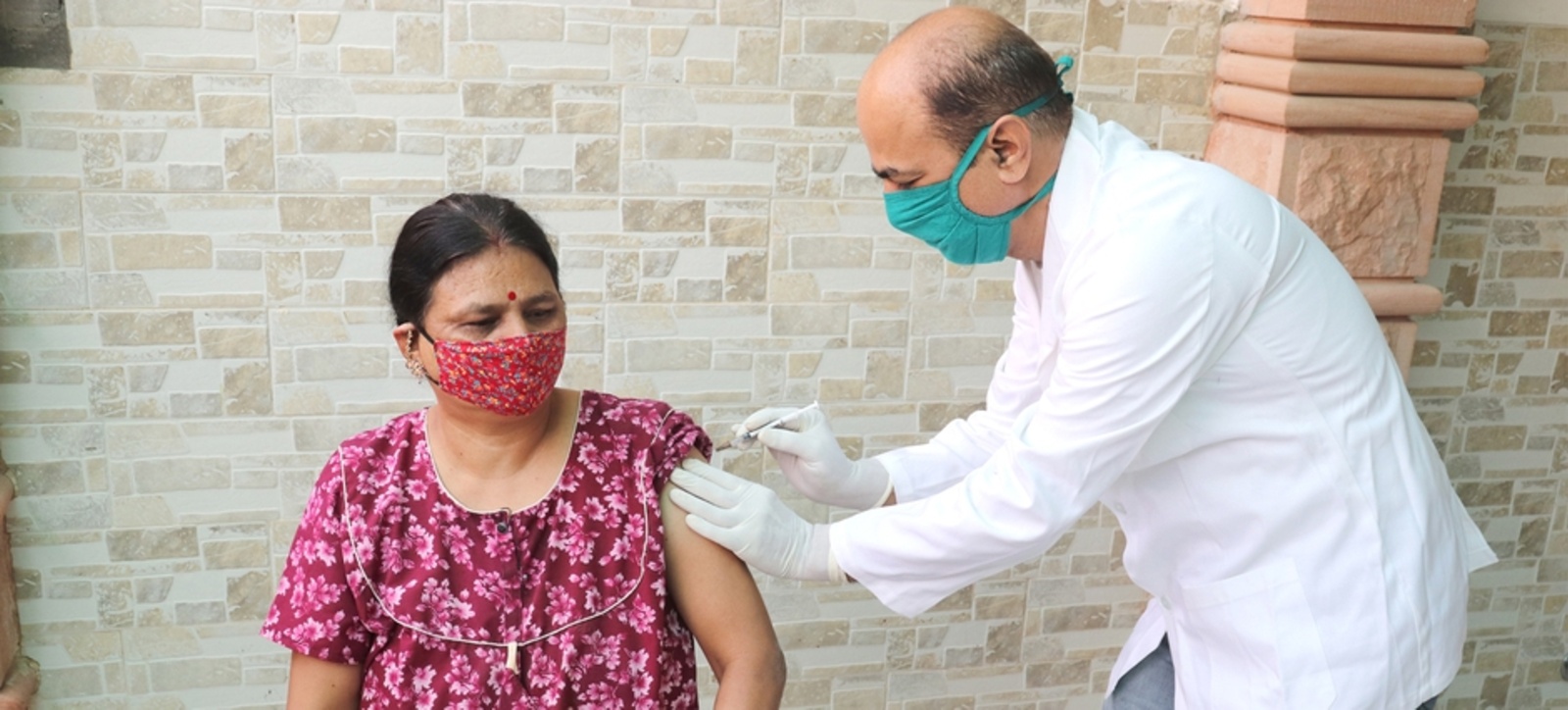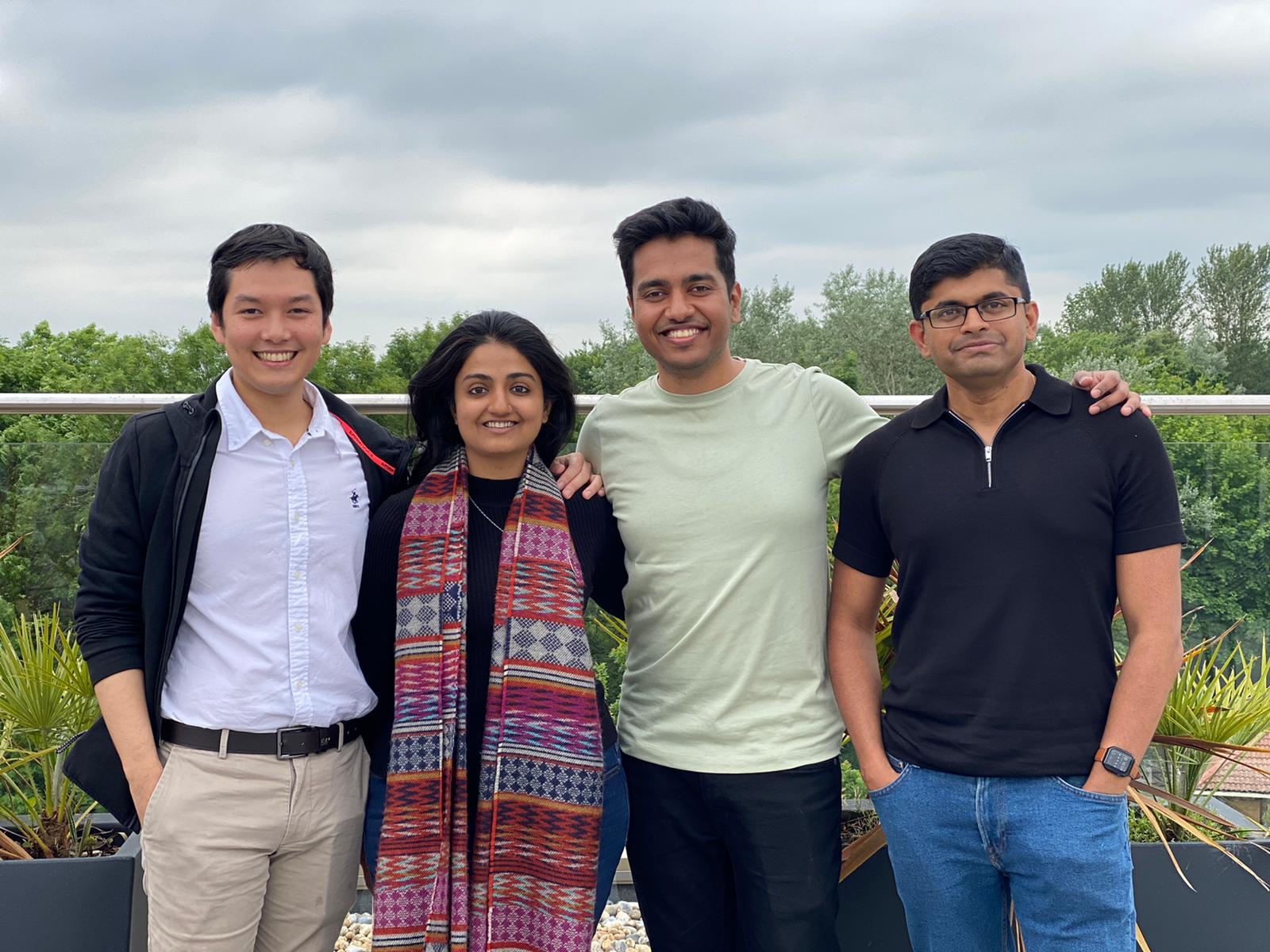
- Judges liked team's solution for rolling out India's vaccination programme
- They called for the vaccination to be free to all Indians to ensure distribution
- First phase would involve offering the jab to adult workforce
- Recommend issuing COVID bonds to pay for $16 billion operation
Four MBA students won $2,500 after finishing second in the global CK Prahalad Grand Challenge organised by the University of Michigan in the US.
The Full-time MBA students competed against more than 80 teams to design an innovative business model to ensure equitable distribution of COVID-19 vaccines across India.
With a population of more than 1.3 billion, it is the biggest vaccination drive in the world with the team of Indians Vinamra Mathur, 30, Aishvarya Gadhvi, 31, Nikhil Londhe, 37, plus Thai Deesamer Yimprasit, 28, having a vested interest in the competition.
“This is something we follow very closely as it directly affects our family members in India,” said Vinamra.
“We are extremely pleased to finish second. It was an excellent experience for us pitching our solution to the jury and answering questions on its economic and logistic feasibility, the level of positive impact, equitability of distribution, and scalability.
“It is also pleasing to see that some of our solutions, like opening the vaccination roll-out to major workforces, have been implemented by the Indian Government. It gave us immense satisfaction.”
After being selected as one of the top five teams from more than 80 entries, the team – who named themselves Mind Your Business – had to present for 12 minutes online to the judges, which included Deepa Prahalad, the daughter of the late Professor Prahalad, who inspired the competition and is famed for developing the ‘base of the pyramid’ concept, exploring how business can pursue sustainable growth while playing a role in alleviating poverty.

The team planned to utilise the distribution channel of manufacturers that are already moving products requiring cold storage, such as Indian dairy co-operative Amul, rather than creating a new supply chain network, with blockchain and QR codes used to track vials and maintain security.
They also suggested the first phase of vaccinations should target working adults as they are the primary carrier of the virus, with extra funding coming from the issuing of bonds as the students argued it should be free for everybody instead of those over 45 and not frontline workers having to pay 250 Indian rupees (£2.46).
Aishvarya said: “We estimated the total cost of the vaccination roll-out to be $16 billion and $11 billion is required to vaccinate the 900 million adult workforce. As the Government has already budgeted for $5 billion, we recommended the additional amount to be funded by issuing COVID-19 bonds.
“Investors would receive the regular interest payment and then an extra payment based on hitting tax revenues being collected and vaccination rate targets.
“When results are unsatisfactory, investors will not receive the premium and so will put pressure on the Government to improve the vaccination in inefficient states and support local businesses in poor economic growth areas to increase tax revenues.”
Mind Your Business also recommended collaboration with the private sector to help data management and the running of the Government’s COVID-19 app, plus a social media marketing campaign involving celebrities to counter the avalanche of fake news and conspiracies surrounding the vaccination.
Nikhil added: “All this must happen in conjunction and in partnership with the private sector in the form of stratified action groups at the centre and state level to advise and facilitate the execution by the lower groups at district and unit level.”
The team had to answer questions from the judges for another eight minutes before securing their runners-up spot
Deesamer said: “It was a great experience. We learned so much, not just through the process of putting together our pitch but through listening to the other teams’ ideas and from the judges as well. It was great to come second among so many top teams from around the world.”




 X
X Facebook
Facebook LinkedIn
LinkedIn YouTube
YouTube Instagram
Instagram Tiktok
Tiktok